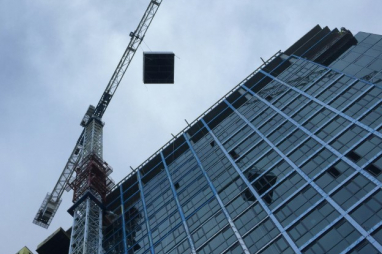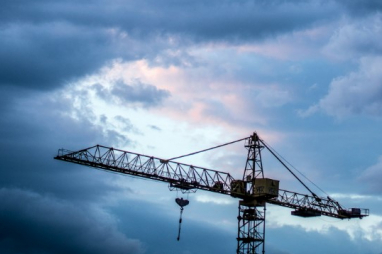- adidas Samba Sizing: How Do They Fit? , adidas nebzed k eh2542 negras , IetpShops
- nike huarache 2004 black mustang gt manual South Beach CZ0328 - 400 2021 Release Date Info - nike huarache 2004 black mustang gt manual , IetpShops
- nike running shoes sell for sale on walmart card - 200 - order nike shox online sale shoes for women FV2923
- SlocogShops , Kanye West Calls The adidas Yeezy Boost 350 V2 "Steel Grey" a "Fake" Colorway , adidas mock neck pullover sweater free pattern
- Adidas x Pharrell NMD HU Gold - adidas Nizza Platform Mid Parley Almost Blue W Release Date - SBD
- air jordan 1 retro high og university blue 555088 134
- eastbay restock large amount air jordans
- new air jordan 1 high og osb dian blue chill white cd0463 401
- all star air jordan 1 gotta shine
- nike air force 1 low white gold dc2181 100 release date info
- Home
- News and analysis
- Info hubs
- Events
- Video
- Case Studies
- About us
- Magazine
- Advertising
Produced for the industry by the Association for Consultancy and Engineering
News
Improved order books help stabilise construction, says PMI report

Renewed improvement in order books has helped to stabilise construction activity in February – according to the latest PMI report.
February data pointed to improved demand conditions across the UK construction sector. Although only marginal, the rate of new business growth was the fastest since May 2023.
A turnaround in construction order books contributed to a near-stabilisation of overall output levels in the latest survey period.
Business optimism improved for the third time in the past four months and was the highest since January 2022.
Construction companies cited hopes of a sustained upturn in customer demand as well as more favourable economic and financial conditions over the course of 2024.
At 49.7 in February, up from 48.8 in January, the headline S&P Global UK Construction Purchasing Managers’ Index™ (PMI®) – a seasonally adjusted index tracking changes in total industry activity – registered its highest level since August 2023. The figure was only fractionally below the neutral 50.0 threshold.
All three main categories of construction activity saw a near-stabilisation of business activity in February.
House building saw the biggest turnaround since January, with the respective index at 49.8, up from 44.2 and the highest level since November 2022.
Survey respondents suggested improving market conditions had gradually contributed to a stabilisation of residential construction work.
In contrast, the commercial segment saw a more subdued performance than in January, with construction companies typically citing hesitancy among clients and constrained budget setting.
Total new work increased marginally in February, thereby ending a six-month period of decline.
This appeared to reflect a turnaround in tender opportunities and greater client confidence, especially in the house building segment.
But employment was a weak spot in February. Despite positive trends for order books and sales pipelines, staffing numbers decreased for the second month running.
Although only moderate, the rate of job shedding was the fastest since November 2020.
Looking ahead, more than half of the survey panel (51%) anticipate a rise in business activity over the year ahead, while only 6% forecast a reduction.
Construction companies mostly noted new project starts and positive signals for customer demand, partly linked to expected interest rate cuts.
Tim Moore, economics director at S&P Global Market Intelligence, which compiles the survey, said: “A stabilisation in house building meant that UK construction output was virtually unchanged in February.
“This was the best performance for the construction sector since August 2023 and the forward-looking survey indicators provide encouragement that business conditions could improve in the coming months.”
Brian Smith, head of cost management and commercial at AECOM, welcomed the data – but also advised caution.
“The return of spring has brought a brighter outlook for the sector after an extended period of difficulty, stemming back 12 months, but it will be forgiven for exercising caution,” he said.
“Firms have done well to weather the storm of high inflation and tightening financial conditions but, while order books are positive for this year, the survey indicates a more competitive tender market ahead.
“Two-stage contracting is becoming the preferred approach among tier one contractors, providing an opportunity for two-way early-stage conversations with developers.
“But despite a slight uptick, the overall volume of work available will still raise concerns for sub-contractors with shorter pipelines and weaker balance sheets.”
Max Jones, director in Lloyds Bank’s infrastructure and construction team, added: “The mood music surrounding the sector has become more upbeat in recent weeks, with healthy infrastructure pipelines a common theme coming out in our conversations with contractors.
“While inflation remains sticky, the industry managed well through its peaks and there’s a feeling of confidence it will move in the right direction for the rest of the year.
“Looking to longer term planning, contractors are ramping up investing in the skills needed to ensure they can deliver on the demand for projects key to decarbonisation. Those that invest today will be best placed to reap the rewards of the net zero transition.”
PMI data was collected from February 12-28.





